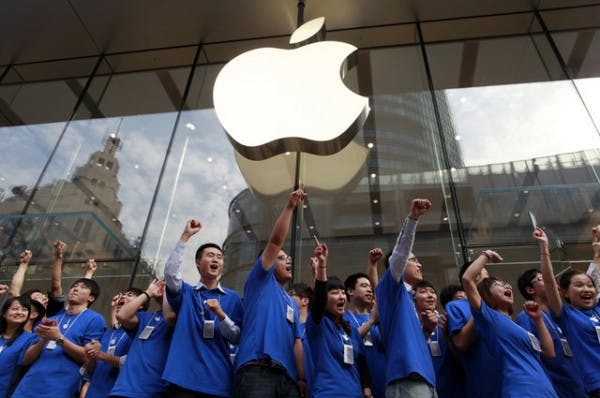Apple Inc. (NASDAQ:AAPL) CEO Tim Cook recently issued an apology to Chinese consumers after state-run media outlets (most notably China Central Television) subjected the iPhone maker to withering criticism about its warranty policies in China. The controversy centered around Apple’s policy of repairing broken products rather than replacing them, as Apple does in many other markets. Media outlets claimed that Apple was therefore taking advantage of Chinese consumers, and Apple was accused of “unparalleled arrogance.” In his apology to Chinese customers, Cook vowed to improve customer service and reiterated the company’s concern for customer satisfaction.

China is a very important market for Apple Inc. (NASDAQ:AAPL). “Greater China,” which includes Taiwan and Hong Kong, is Apple’s second-largest market, and revenue has been growing rapidly there. In January, Tim Cook stated that he expects China to eventually surpass the U.S. as Apple’s top market by revenue. However, if the recent media campaign against Apple Inc. (NASDAQ:AAPL) gives rise to a full-blown consumer backlash against the company, it could severely disrupt Apple’s growth trajectory there. Fortunately, I believe that Chinese consumers are by and large savvy enough to see through this “scandal,” which has been completely manufactured by the state-run media. Moreover, the media appear to be toning down their rhetoric in light of Cook’s apology.
How big is the risk?
On Monday morning, analyst Glen Yeung of Citigroup Inc (NYSE:C) (a prominent Apple Inc. (NASDAQ:AAPL) bear on Wall Street) compared Apple’s recent troubles in China to a similar campaign three years ago that targeted Hewlett-Packard Company (NYSE:HPQ). In that case, numerous consumers complained of overheating problems in their HP laptops. While HP offered extended warranties for some of the affected models in China, it was offering superior warranties in the U.S. This provoked complaints of discrimination in the media. According to Yeung, HP lost 42% of its market share in China in the 12 months following this fiasco. Yeung suggested that a similar backlash against Apple Inc. (NASDAQ:AAPL) (if it materializes) could knock as much as $3.62 off Apple’s EPS.
Is the risk real?
However, many Chinese consumers seem to be taking a skeptical view of the media’s criticism of Apple. Numerous (Western) news reports have quoted Chinese citizens who believe that state-run media outlets are criticizing Apple in order to divert attention from the government’s failings. This viewpoint was supported by the revelation that various celebrities had been recruited to criticize the company on Weibo, a Chinese microblogging site. Others in China speculated that CCTV may have been trying to extort ad revenue from Apple. Many citizens also pointed to much more serious consumer rights violations by state monopolies that are ignored by the state-run media.
By Tuesday, Chinese media seemed to be ending their attack on Apple, praising the company for its quick apology and its promise to improve its warranty policies. Media outlets rightly noted that Apple is incredibly customer-friendly compared to other American companies operating in China (not to mention Chinese-owned companies).
Catastrophe averted — for now
It is too soon to say for sure what the ultimate impact of this incident will be. However, the worst-case scenario proposed by Yeung (the Citigroup analyst) seems far-fetched, to say the least. The growing acceptance of Apple’s apology among news outlets that were fierce critics just a few days ago makes it unlikely that a broad-based Apple boycott will take hold. In fact, this episode may ultimately prove beneficial for Apple, as it highlighted the company’s customer-friendly attitude, which differentiates it from many global companies doing business in China.
The article Apple’s China Snafu: Epic Fail, or No Big Deal? originally appeared on Fool.com and is written by Adam Levine-Weinberg.
Fool contributor Adam Levine-Weinberg owns shares of Apple and Hewlett-Packard. The Motley Fool recommends Apple. The Motley Fool owns shares of Apple and Citigroup.
Copyright © 1995 – 2013 The Motley Fool, LLC. All rights reserved. The Motley Fool has a disclosure policy.

